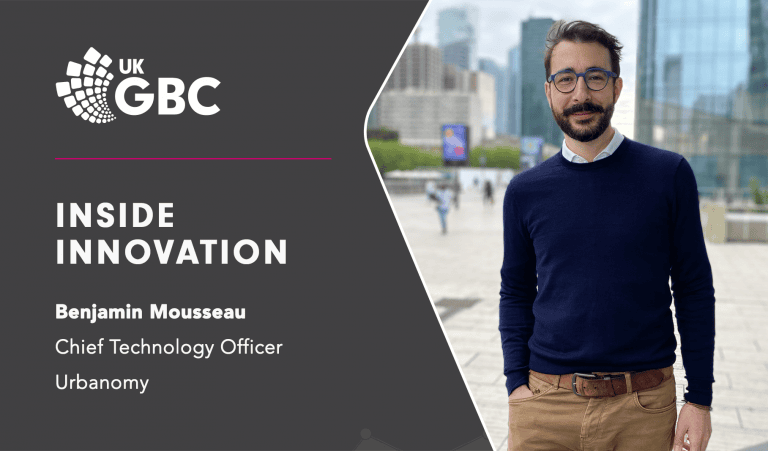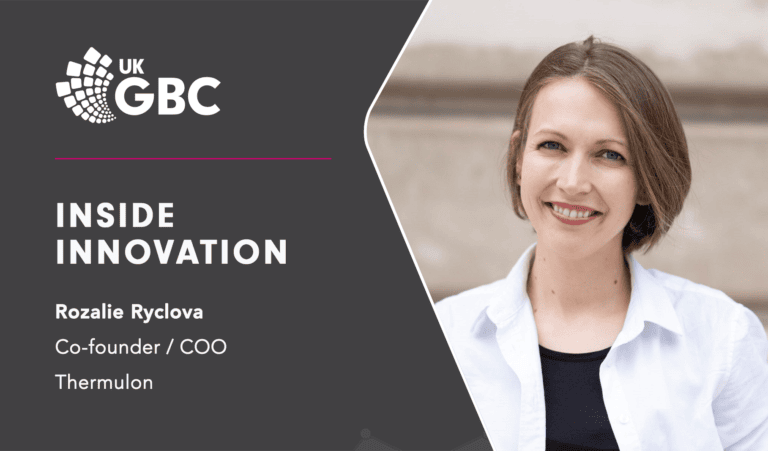Urbanomy

What is your elevator pitch?
Urbanomy is an EDF spin-off with a mission to accelerate the transition to affordable, reliable and sustainable energy in the built environment.
We offer developers, asset managers and local authorities a route to achieving their sustainability targets through integrated urban and energy planning.
We support energy neutral (or positive) developments by identifying opportunities for renewable energy solutions—such as PV, geothermal, hydrogen, heat networks, batter storage, vehicle-to-grid, and more. Using a range of digital simulation tools, we are able to model the cost and sustainability outcomes of these solutions for a particular project early on. This helps our clients make the right infrastructure decisions at the beginning of the design-development process, when there is the greatest scope to shape a project’s future.
How did you get to where you are today?
The Urbanomy offer is around 10 years old. After working on the project for a number of years as part of EDF’s R&D team, we were accepted into EDF’s internal incubator programme, Pulse Expansion, for a year and a half. The incubator was a great way for us to connect and learn from other start-ups, develop our offer, and start to build our team.
Having been given the investment to create a standalone business in January 2020, we have since built a small multi-disciplinary team of eight based in the UK, France and Germany. We are currently exploring the possibility of opening a new office in the UAE.
What does innovation mean to you?
For me innovation means disruption and creativity. In my experience, bringing a sense of open-minded to a challenge and seeing it in an almost naïve way is the best way to create something new.
I also think it’s important to encourage diversity of thought and backgrounds. This was crucial during our R&D phase, when we brought together engineers, architects, sociologists, environmentalists, geographers, and economists to develop our tools and offer. By engaging with many different perspectives, we were able to develop an offer that accounts for the complexity of the urban environment.
How hungry is the built environment for innovation?
In my opinion, the built environment, both public and private, is craving innovation but remains relatively conservative in its outlook. I think this is largely due to the complexity and permanence of urban development. With buildings and infrastructure needing to last for decades, innovation is often viewed as an unacceptable risk. The transition to net zero presents an opportunity to do things differently—to bring together different disciplines and even sectors to something completely new.
What needs to change to help encourage more innovation?
One thing that could be improved in the UK is the planning process, as planning is is the stage when you can really shape the future of a place and avoid costly retrofits or changes down the line. We’d like to see more opportunities for community involvement and engagement, which we believe should play a key part in every project. And we’d like to see stronger environmental regulations, so that sustainable infrastructure isn’t simply a ‘nice-to-have’.
What are the biggest challenges you have faced as a start-up?
Covid. When we started at the beginning of last year we couldn’t interact with our team in the same way. On the other hand, I think covid has raised awareness about the importance of place and our local environment. There’s a momentum for decarbonisation that seems to be growing!
What’s your advice for new innovators and start-ups in the built environment?
The sky is the limit. Go ahead and don’t be scared. There’s lots of demand for new ideas and new things in the world. Make sure you collaborate with as many people as possible; don’t build your idea or start-up only with people from your sector or discipline.
What’s next for your company?
Our current focus is on the UK and Germany, as this is where we see the greatest transition towards net zero development. In the UK, in particular, we’d like to build on a recent project, in which we supported the development of a net zero garden village. Working with the local authorities and a range of community stakeholders, we at Urbanomy developed a new approach to advising on energy and mobility-related decisions, which we think could be applied to similarly ambitious projects across the UK.
Related
Inside Innovation: R8 Technologies

Inside Innovation: Etopia

Inside Innovation: Thermulon

Inside Innovation: Biohm

